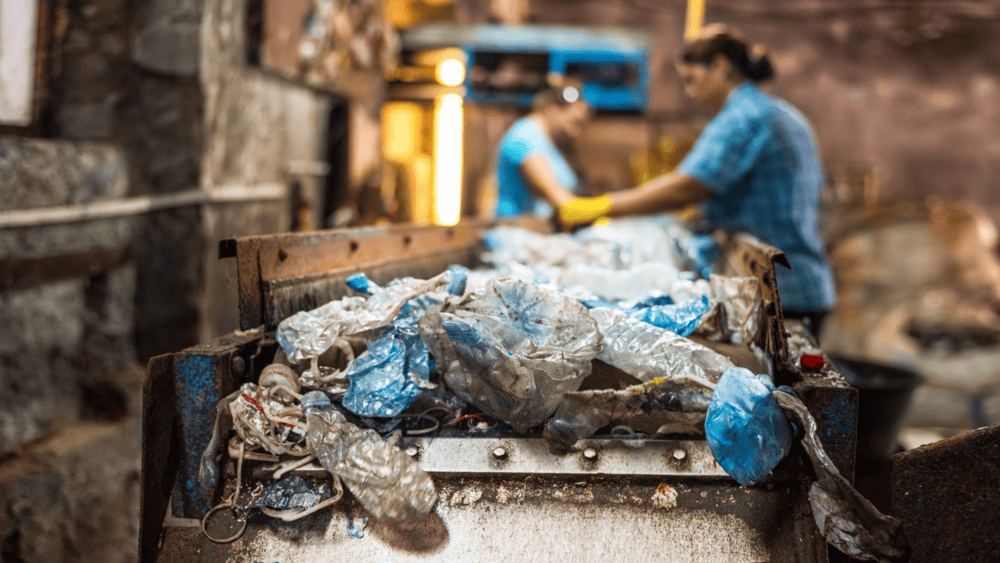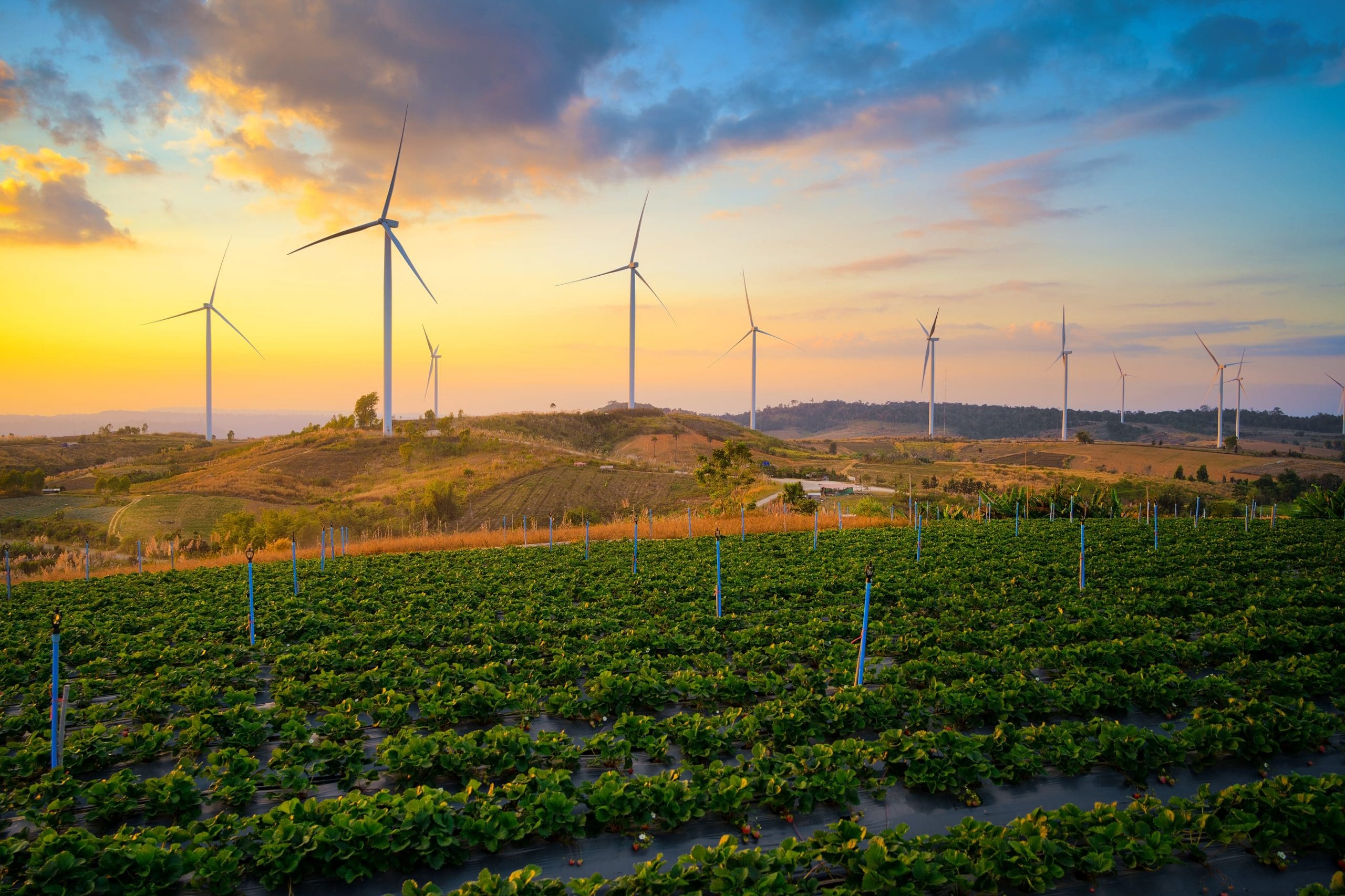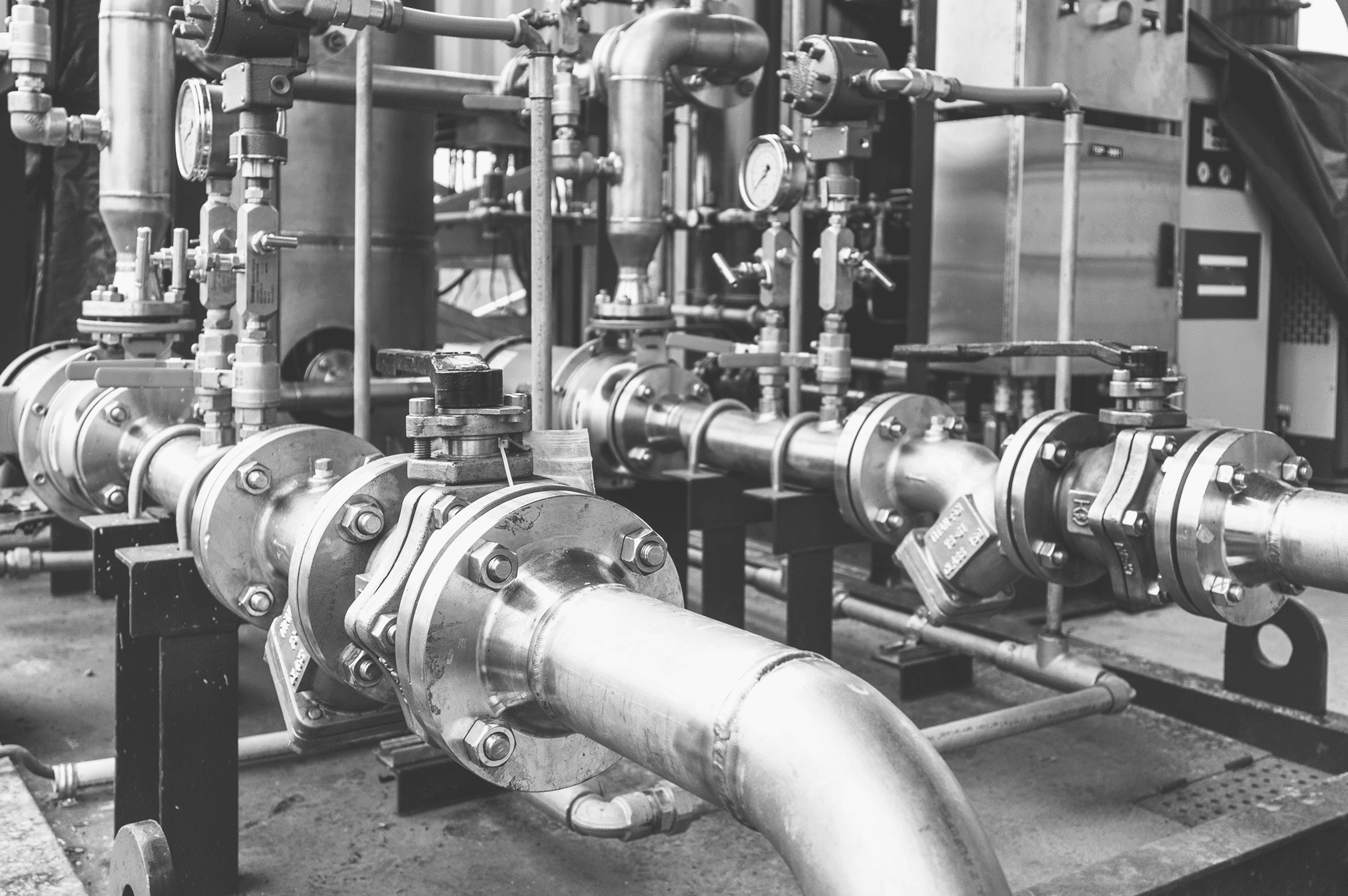Is South Africa’s water system still in crisis mode in 2024?
South Africa has a water crisis that will continue for the next five years or longer if remedial measures planned are not fast-tracked and implemented timeously.
Water availability in South Africa
South Africa, being classified as semi-arid with a mean annual rainfall of approximately 500mm, well below the world average of 860mm, has devoted substantial research and investment in water regeneration, conservation, storage and distribution. This resulted in South Africa having many dams, and the construction of two massive dams with water ducts inside the mountains in Lesotho to augment the supply of water to Gauteng.
Momentum and consistency in keeping up with infrastructure development and maintenance have unfortunately stalled, despite the growing population and associated water demand that inevitably keeps increasing. The need to increase storage for the dry season and water recycling plant capacity has also not been acted upon. As per the WOW report on the collection, purification, testing and distribution of water in South Africa, Finance minister Enoch Godongwana in his Medium-Term Budget Policy Statement identified water provision, management, and the state of our wastewater systems as one of the most pressing issues facing South Africa.
Status of water infrastructure in South Africa
Although water services infrastructure may be in place, the functionality of schemes due to poor maintenance and operation compromises the ability to supply reliable and high-quality water to meet ever-increasing demand.
To illustrate the lag in securing supply, the Daily Investor reported on 10 Dec 2023, that between 1964 and 1994, South Africa constructed 18 new dams that can each store 200 million cubic metres of water. Yet over the last 25 years, South Africa has only built two dams with over 200 million cubic metres. The WOW report also indicated that Phase 2 of the Lesotho Highlands Water Project to augment the integrated Vaal River System supplying Gauteng and surrounding areas, was launched in 2004 with the actual construction commencing in 2023, although it was initially scheduled for completion in 2019.
The recycling of water has not fared any better, with pollution of rivers and beaches due to the release of untreated water, sludge, and waste into the system.
Impact of power cuts on water availability
Power cuts experienced nationwide compelled the minister of Water and Sanitation to introduce what he calls water shifting, meaning that water would not be available in some areas at certain times. There has been a severe deterioration of the quality of water in certain parts of the country, which is gradually creeping into more areas.
Water is more essential than electricity and the inconvenience is much greater. The continued poor to very poor beach water quality at Durban beaches is among the major causes of the drop in December holiday tourism to Durban from 7.4 million visitors and R19.2m spent in 2015 to 800,000 visitors and R1.6m spent in 2024, according to BNN Breaking news network figures.
In the consumption of water for domestic use, discretion has become the norm with more people having to buy potable water, particularly in areas like Parys and many other municipalities where the quality and availability of water are forcing residents to buy potable water.
A BusinessTech article based on a government publication report said that: “The Department of Water and Sanitation has published the full Blue Drop, Green Drop, and No Drop Water reports for 2023, revealing a dire state of affairs when it comes to safe and clean drinking water in the country”. According to the department, there has been an overall decline between 2014 and 2023. The report further revealed that, for 2023, of 958 water systems, 277 (29%) were located in 62 water service authorities (WSAs) and were identified to be in a critical state of performance compared to the 174 systems in 33 WSAs in 2022.
Water Quality per Province in South Africa
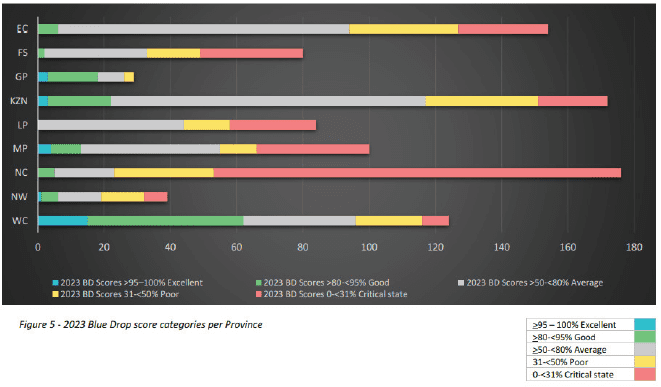
Where to from here for the water sector?
While the government identified water provision, management, and the state of our wastewater systems as one of the most pressing issues facing South Africa, water losses in the distribution network are way above acceptable standards, and government has its work cut out in terms of water infrastructure investment for the next five years to catch up. It will have to start by ensuring that the revised timelines for completing planned water projects as illustrated in the referenced table are adhered to.
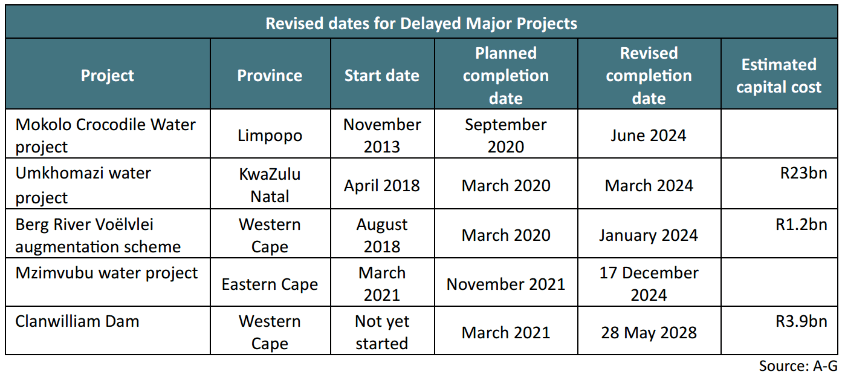
If not, government will have to deal with irritation and revolt of people who no longer have piped and potable water availability, and the still large number of people losing patience at not having a piped and safe water supply at all, which was promised so long ago.
Contact us to access WOW's quality research on African industries and business
Contact UsRelated Articles
BlogCountries South AfricaWater supply sewerage waste management and remediation activities
South Africa’s Solid Waste Crisis: Challenges and Opportunities
Contents [hide] Most of the approximately 125 million tonnes of solid waste generated in South Africa annually ends up in landfill sites. This should be of concern to all the...
BlogCountries Agriculture forestry and fishingElectricity gas steam and air conditioning supplySouth AfricaWater supply sewerage waste management and remediation activities
The Impact of Load shedding on Agriculture in South Africa
Food security is one of the strategic inputs and essential elements of policy development and on the first level on Maslow’s hierarchy of needs. Agribusiness is big business for governments...
Blog South AfricaWater supply sewerage waste management and remediation activities
The Water Sector: The source of Life – conserve to preserve
There are 2 inescapable things to consider when it comes to drinking water. Firstly, there is not too much on this planet. Only 3% of earth’s water is sweet water...

